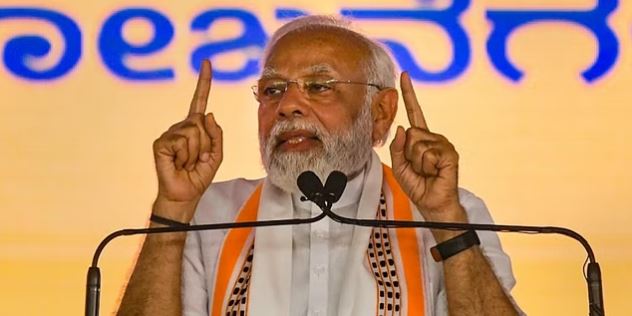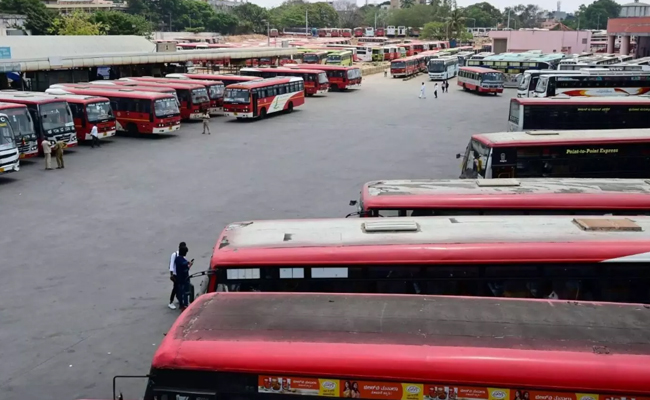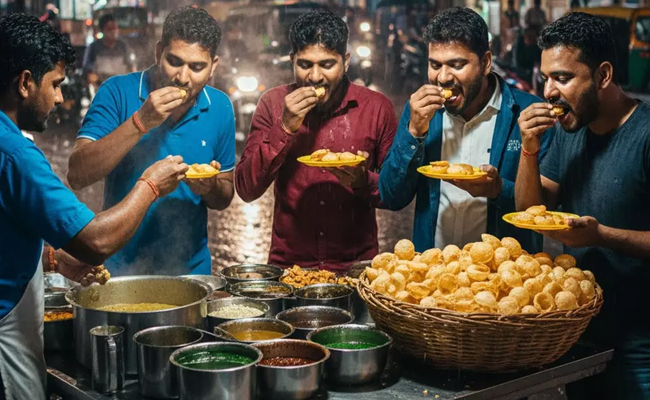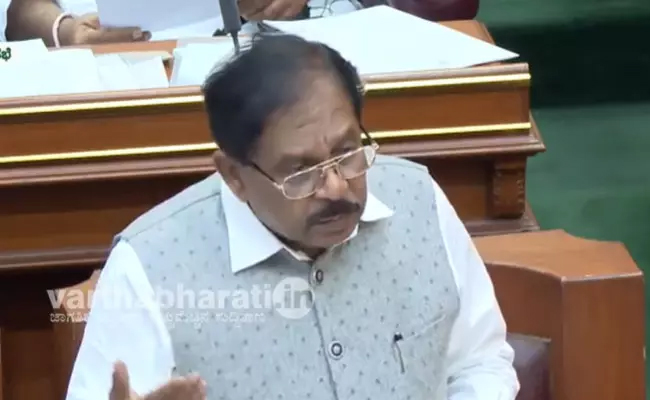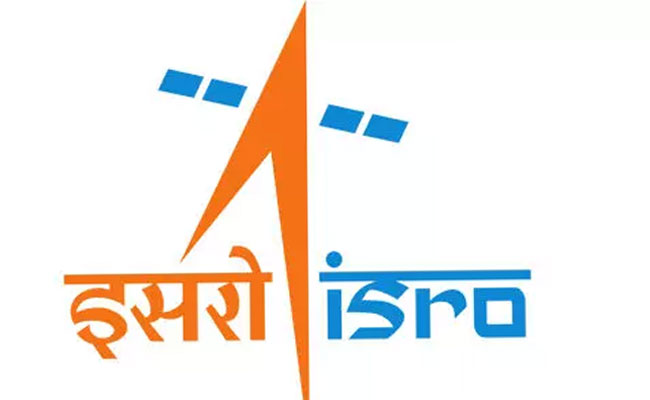Dharwad (K'taka), Mar 12: Prime Minister Narendra Modi on Sunday targeted Rahul Gandhi for his remarks on democracy in the country at an international forum and said no power in the world can harm India's democratic traditions.
Without naming Gandhi and referring to the Congress leader's remarks made in London -- that structures of Indian democracy are under "brutal attack", Modi termed it an insult to 12th century social reformer Basaveshwara, the people of Karnataka, India's great traditions and its citizens.
The PM's statement is being seen with political significance, as Basaveshwara is highly revered in Karnataka, especially by the dominant Lingayat community who form the major vote base of the ruling BJP.
Modi was on his sixth visit this year to Karnataka, where Assembly elections are due by May.
"I have come to the land of Bhagwan Basaveshwar and I'm feeling blessed. Among the contributions of Basaveshwara, most important is the establishment of Anubhava Mantapa, this democratic system is researched across the world, and there are several such things because of which we say India is not just the largest democracy, it is also the mother of democracy," he said.
Addressing a large gathering after inaugurating the permanent campus of Indian Institute of Technology (IIT) Dharwad here, he said, he has had the good fortune of unveiling the statue of Basaveshwara in London a few years ago.
"Statue of lord Basaveshwar is in London, but it is unfortunate that in the same London questions were raised on India's democracy; the roots of India's democracy have been nurtured by centuries of our history. No power in this world can harm India's democratic traditions. Despite this some are constantly making it stand in the dock," Modi said in a veiled swipe at Gandhi.
Such people are insulting Bagawan Basaveshwara, the people of Karnataka, India's great traditions, country's 130 crore aware citizens, he further said, adding "people of Karnataka should be cautious about such people."
Earlier, in a veiled attack on Gandhi over his recent remarks in the UK, Uttar Pradesh Chief Minister Yogi Adityanath had said when India's dominance on global platforms is growing, some people are criticising the country on foreign land.
Karnataka Chief Minister Basavaraj Bommai, and Union Minister Pralhad Joshi among others were present at the Dharwad event.
Karnataka is the engine of "high tech India", Modi said. "It is important this engine gets the power of double engine government."
Let the Truth be known. If you read VB and like VB, please be a VB Supporter and Help us deliver the Truth to one and all.
Bengaluru: The Karnataka State Road Transport Corporation will operate 1000 additional special services in view of the Christmas festival.
In addition to the existing schedule, the special services will run on 19.12.2025, 20.12.2025 and 24.12.2025. Further, special buses will be operated from various places of intra & Interstate places to Bengaluru on 26.12.2025 & 28.12.2025.
Special buses will be exclusively operated from Bengaluru Kempegowda Bus Station to Dharmastala, Kukkesubramanya, Shivamogga, Hassan, Mangaluru, Kundapura, Shringeri, Horanadu, Davangere, Hubbali, Dharwad, Belagavi, Vijayapura, Gokarna, Sirsi, Karwar, Raichur, Kalaburagi, Ballari, Koppala, Yadgir, Bidar, Tirupathi, Vijayawada, Hyderabad and other places.
ALSO READ: Bengaluru: Shopkeeper stabbed for refusing to serve free panipuri
Special buses from Mysuru Road Bus Station will be exclusively operated towards Mysuru, Hunsur, Piriyapatna, Virajpet, Kushalanagar, Madikeri.
The corporation has also announced a discount of 5 per cent on the fare if four or more passengers book tickets under a single reservation. A discount of 10 per cent will be extended on return journey tickets if onward and return tickets are booked simultaneously.
In addition to the above, special buses will be operated from all Taluk/District Bus Stands in the jurisdiction of KSRTC based on the traffic needs.

